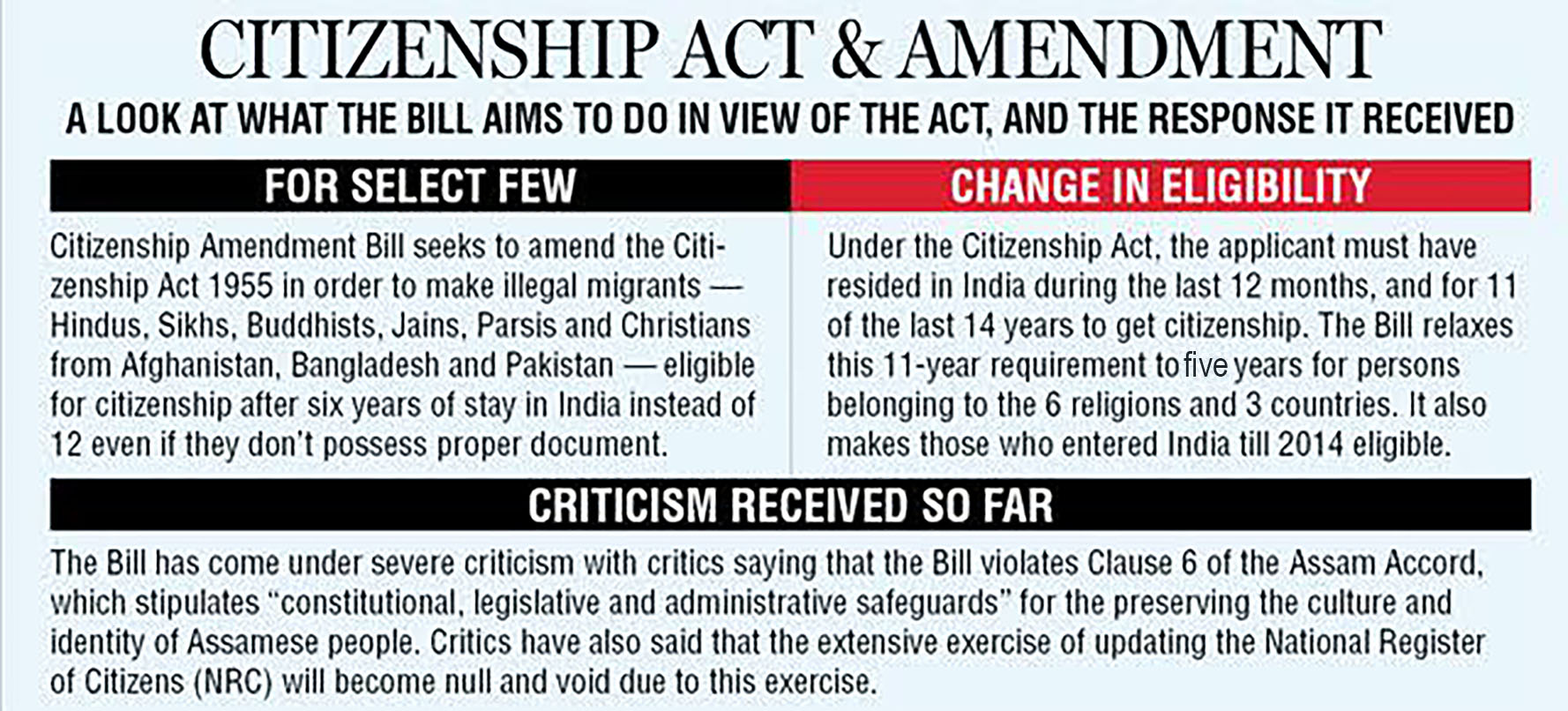PREVIOUS
Citizenship (Amendment) Act, 2019
December 15 , 2019
1959 days
2645
0
- The Parliament has passed the Citizenship Amendment Bill (CAB), 2019
- in Lok Sabha on December 09, 2019.
- In Rajya Sabha on December 11, 2019.
- The President gave his assent for the bill on December 12, 2019.
- The Act seeks to give citizenship to refugees of 6 communities (Hindu, Christian, Sikh, Jain, Buddhist, and Parsi) belong to Pakistan, Bangladesh, and Afghanistan.
- It makes easier for non-Muslim immigrants from India’s three Muslim-majority neighbours to become citizens of India.
Key features
- The Bill amends the Citizenship Act, 1955.
- For the first time, the Act will grant citizenship on the basis of religion to non-Muslims who entered India on or before December 31, 2014.
- The amendment relaxes one of the requirements for applicants of residing in India from 11 years to 5 years as a specific condition.
- Exceptions: The provisions on citizenship for illegal migrants will not apply to two categories
- states protected by the ‘Inner Line Permit’ (Arunachal Pradesh, Mizoram, Nagaland, and Manipur)
- areas covered under the Sixth Schedule of the Constitution (administration of Assam, Meghalaya, Tripura and Mizoram).
Background
- In India, citizenship is regulated by the Citizenship Act, 1955.
- This Acts has been amended in 1986, 1992, 2003, 2005, and 2016 so far.
- The Act specifies that citizenship may be acquired in India through five methods – by birth, by descent, by registration, by naturalisation and by incorporation of territory into India.
- However, illegal migrants cannot become Indian citizens.
- Now the Act defines illegal migrants.

Leave a Reply
Your Comment is awaiting moderation.


